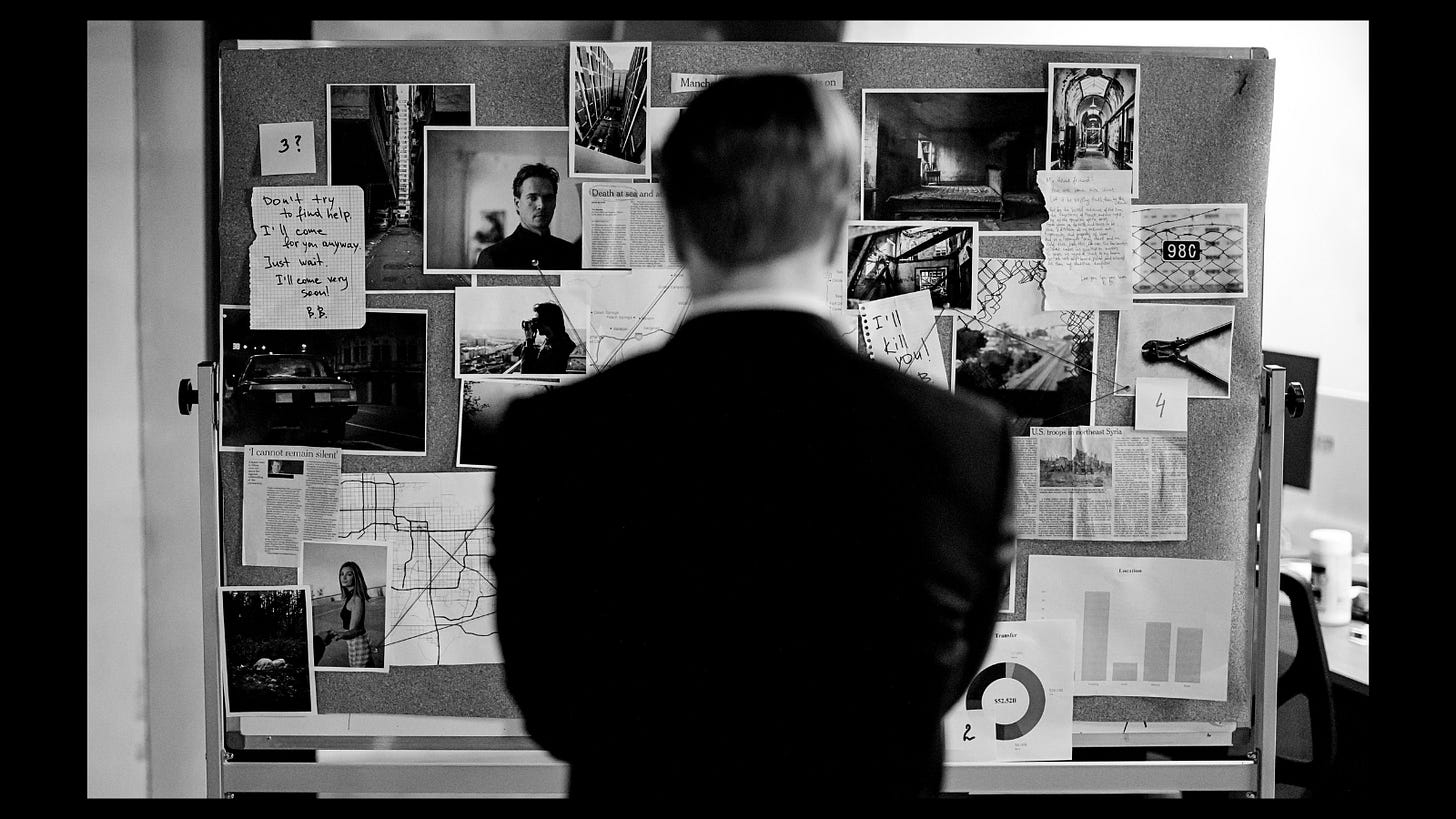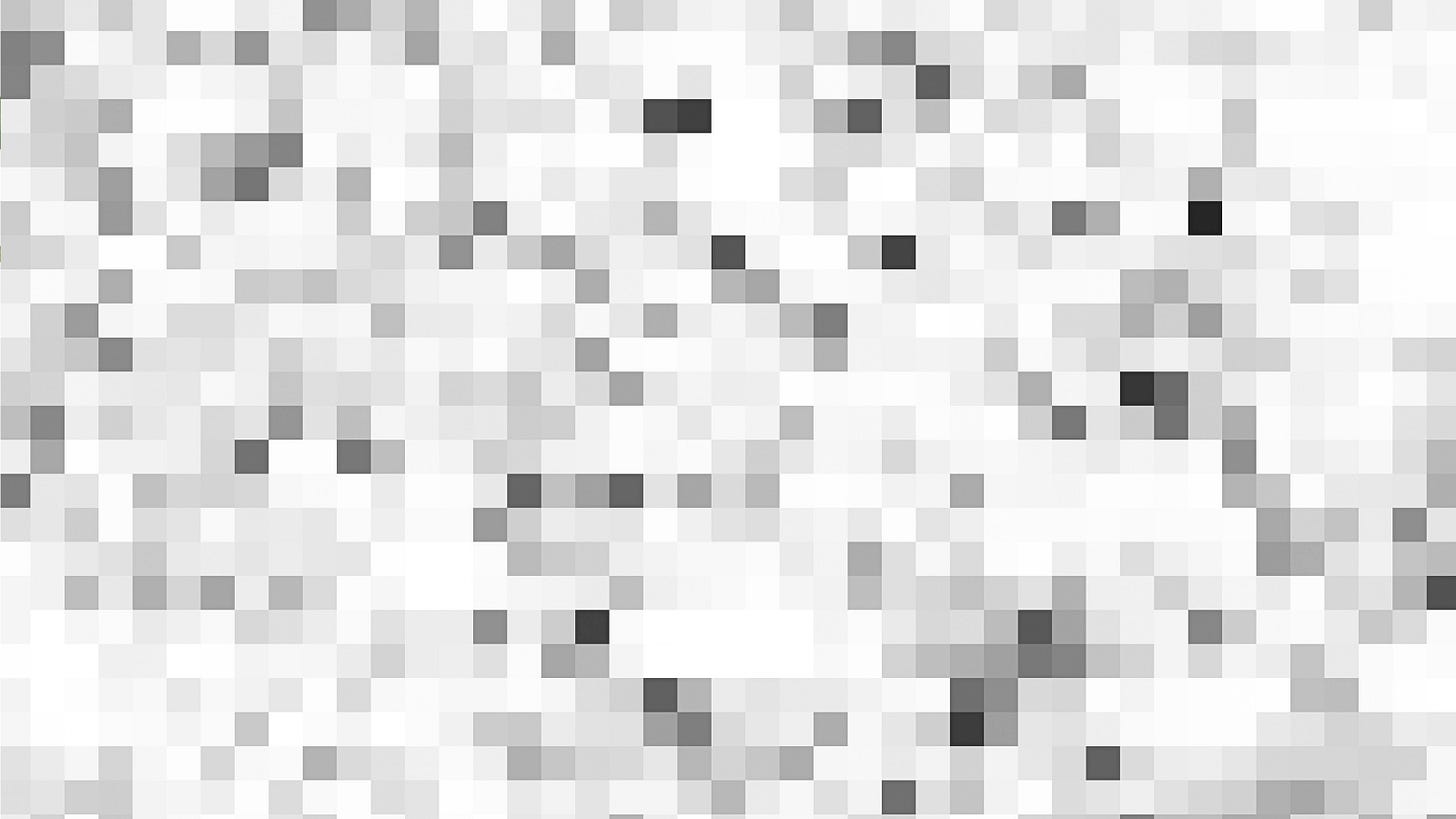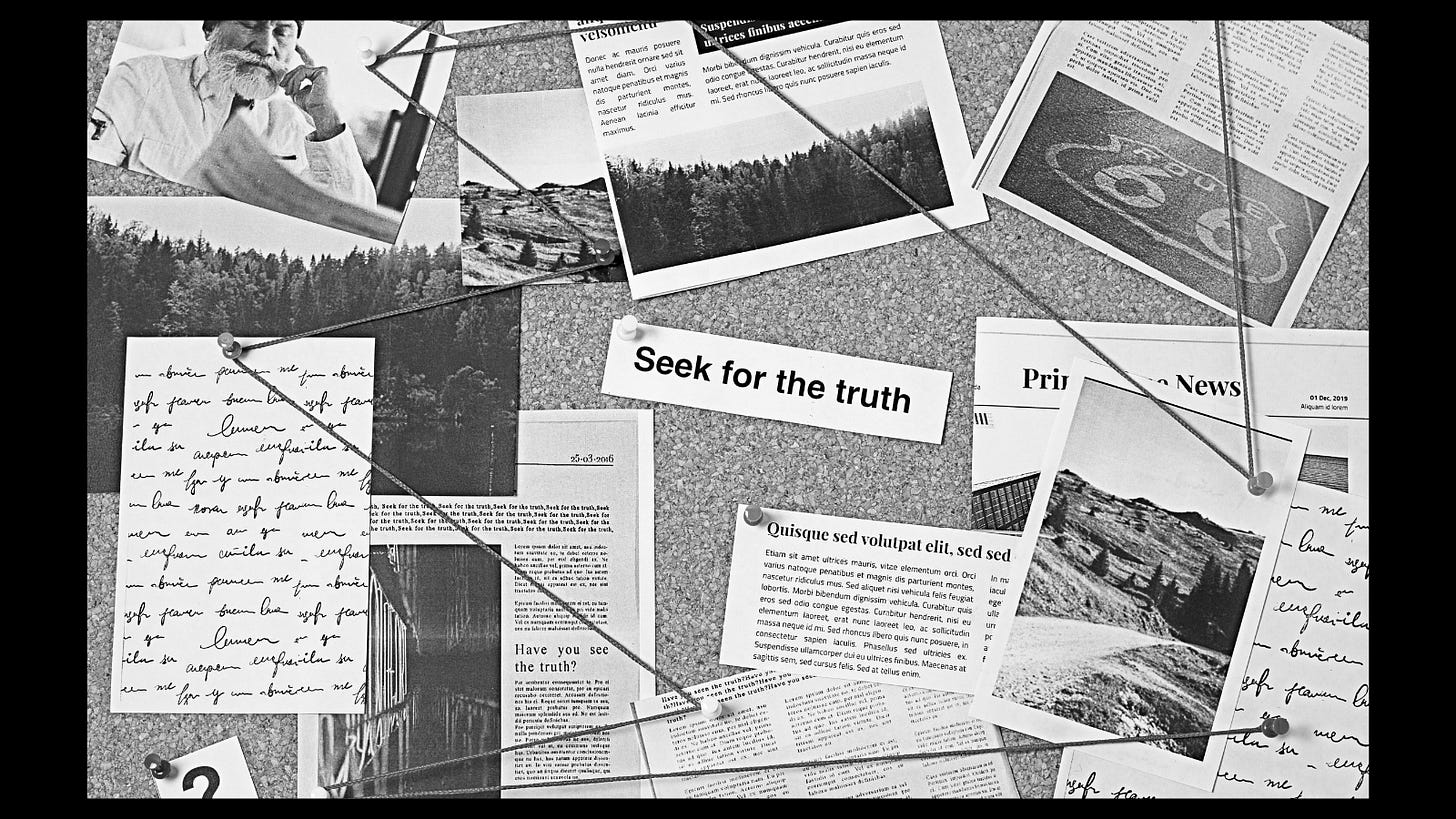How To Start Noticing More of What Others Miss
Essential Questions for Noticing Patterns & Emerging Changes
New Year, New Me!
Well, at least for a couple of days, and then we’re back to same old same old.
So maybe instead, we can try: New Year, New Questions.
The world is changing fast. But speed is only one thing; it’s also changing in a hard to predict ways. The uncertainty is only increasing. So is the noise.
So as we stand at the threshold of 2025, one thing is certain: we're navigating through increasingly turbulent waters.
What can we do?
I wish I had a crystal ball and could see all the answers. Or I could just google it (remember when we googled stuff?!).
Everything these days seem to be in constant flux: from AI breakthroughs to geopolitical tensions, and social dynamics.
Some call this a VUCA world - Volatile, Uncertain, Complex, and Ambiguous. I prefer to think of it as living in permanent flux. Is like walking on shifting sands.
This isn't about keeping up with change, but rather about developing the mental and emotional agility to thrive in it. To become, as Nassim Taleb would say, antifragile - growing stronger through disorder rather than merely surviving it.
The coming year will likely bring us more of everything: more breakthroughs, more challenges, more complexity, and yes, more uncertainty. But here's the thing - while most people are trying to predict what's next, the real advantage comes from developing a better way of seeing what's already happening.
Ever notice how some people seem to spot important changes before everyone else? They're not psychic - they've just developed a different way of looking at the world.
It's about training yourself to see patterns that are already there, hiding in plain sight.
Today, I want to share some questions that may help you develop this "noticing muscle."
The Question Behind The Question
We're all swimming in information. News alerts, social media feeds, industry reports, expert opinions - it's endless. The thing is, having more information doesn't automatically make us more insightful. Often, it does the opposite.
Most of us have become really good at:
Collecting information we never use
Reacting to headlines without seeing patterns
Staying in our comfortable echo chambers
Missing subtle signals because we're distracted by noise
Following the obvious while ignoring the really interesting
Going with the flow requires very little effort, but rarely gets us where we really want to get. Plus, most of the time, we don’t even know where we’re being carried.
I think it’s a very good idea, today more than ever, to get into a habit of going a bit meta - to take a step back, look at the picture and see what if we’re missing something.
My favorite tool of all times: better questions.
The Art of Asking Better Questions
The secret to seeing differently isn't about having more information - it's about asking better questions. Here are some that have transformed how I look at the world.
Some basics:
What feels different lately?
What are people almost saying, but not quite?
What's missing from the conversation?
What do I keep stumbling upon? And what feels uncomfortable or challenging about this?
What are the second-order effects?
Who's not at the table?
What's everyone taking for granted?
And some Reflection Questions:
What surprised me this week?
What am I noticing that I can't explain?
What feels like it's gaining or losing energy?
What questions keep coming up?
What's shifting in how I see things?
What will matter in 3 years?
Mapping Change: The Three Horizons Framework
As we navigate through 2025's uncertainties, one powerful tool I've found is thinking in terms of three “horizons”. Think of it as a map for spotting change:
What's Dying. Look for things that used to work but are becoming less effective.
What is working less well than before?
What outdated methods are people clinging to?
What trends feel like they're ending?
What's Growing. Notice where energy and attention are shifting.
Where is momentum building?
What innovations are gaining traction?
What new approaches are people adopting?
What's Possible. Pay attention to the wild ideas that don't quite make sense yet.
What weak signals could become significant?
What seems impossible now but could be normalized?
What developments could transform the landscape?
And Some More Deep Dive Questions
Meta Trends
What's changing about how change happens?
How do different trends connect?
What are people actually doing versus saying?
What's happening in unconventional spaces?
Who is experimenting with new methods?
Self-Reflection
How is my viewpoint changing?
What beliefs am I re-evaluating?
What do I believe might be wrong?
What contradictions am I noticing?
And…?
It’s good to get into a habit of writing down things we notice. I have a simple app on my phone and a note named “walk notes” because walking helps me think. I keep adding stuff that makes me go “hmm”, surprised me, or sparked my curiosity.
Once in a while, it’s good to be a bit more deliberate with the practice and look at what we’ve collected, take a step back and see what emerges or how things can be related.
The main idea behind all this is to stop just consuming passively and stay at the literal level. It’s no longer about what we read or watch by why is someone writing about it? Am I seeing more of similar stuff lately?
Work the Edges.
Once in a while, I deliberately seek out perspectives that make me slightly uncomfortable. But when I feel a little bit of cringe, when I want to just skip it and go to something else, it’s a good sign. I am not talking about some extreme views, but perspectives just outside my usual bubble. It’s also one of the reasons why I am on different social platforms. It’s the best anthropology course.
It Doesn’t Make Sense Until It Does.
Start noticing things that don't make sense together. Keep a log of paradoxes you encounter.
The more you do it, the more you’ll see patterns emerge. You'll start to notice some interesting changes:
You'll spot patterns before they become obvious to others
You'll feel more comfortable with contradictory ideas and uncertainty (priceless!)
You'll naturally start connecting dots across different fields
You'll find yourself more curious about things that don't quite fit
Stop Guessing, Start Observing.
So, what surprised you this week? What are you noticing that you can't quite explain? What feels like it's gaining or losing energy in your field? These aren't just questions to answer once and move on - you want to keep coming back to them on a regular basis.
The thing is, even smart, well-educated people can fall into lazy, "beige" thinking patterns. In many ways, it’s the most natural thing. But it’s also a risky one. Breaking from it requires:
Conscious effort to challenge our thought patterns
Actively seeking our blind spots
Questioning what we're not questioning
Deliberately changing perspectives
Maintaining intellectual curiosity
And it has to compete with funny cat videos and doomscrolling.
In a world where everyone's trying to predict the future, the real superpower might just be getting better at understanding the present.
So here's to asking better questions in 2025!
Also!
I'm building something for overthinkers. You know - the ones who want, who care, who struggle to start or to finish- and get stuck. A tiny space for people who are tired of their own resistance, and self-sabotage, so they can get out of their own way.
Want in? Here's what's next:
Hope to see you on the other side!




